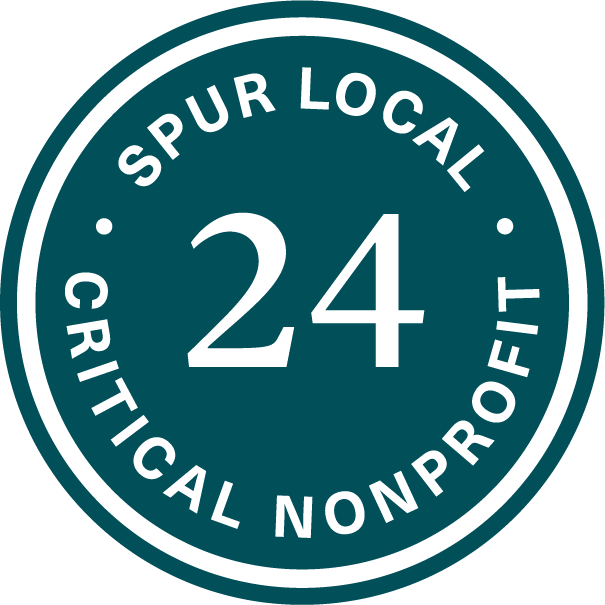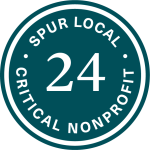
Child Welfare Policy
Testimony by Executive Director Melody Webb to the DC Council Budget Oversight Hearing of the Families and Facilities Committee on the Child and Family Services Agency FY 2024
Testimony at the Budget Oversight Hearing on the Child and Family Services Agency Committee on Families and Facilities
Melody R. Webb, Esq.
Mothers Outreach Network
Tuesday, April 11, 2023, 9:30 a.m.
Good morning, Chairperson Lewis-George and Committee Members. My name is Melody Webb, and I am the Executive Director of Mothers Outreach Network, head of the DC Guaranteed Income Coalition, and also a native Washingtonian, resident of Ward 6.
MON is a non-profit advocacy organization that advances family preservation through focusing on engaging Black moms in the struggle to transform government income and child welfare systems from punitive to uplifting through legal and policy advocacy and community engagement to fight poverty and racial inequity. In addition, this month we will launch the first of three phases of a privately-funded guaranteed income cash pilot for moms who have been involved or have involvement with Child and Family Services Agency. It is with our Mother Up pilot participants in mind and the myriad mothers and 16% of our DC population that lives in poverty that I share my testimony today.
The Coalition’s mission is a moral one, to achieve a permanent guaranteed income that provides unconditional payments to our District neighbors, ensuring everyone lives above the income floor of the federal poverty line, $24,000 for a two-person household.1 Ours is rooted in a solidarity and care economy. Some 16 percent of the city’s total population (about 105,000 people) subsist below it.2 Pre-pandemic, 42.1% of single mothers in the District of Columbia lived in poverty.3 And poverty has consequences that include family destabilization and CFSA involvement, and the shame of our nation, family separation.
How CFSA involvement reflects poverty.
In 2020, according to the US Health and Human Services Child Maltreatment Report, nearly 9 out of 10 open cases at CFSA involved neglect; and in 2019, 4 out of every 5 D.C. cases in foster care, stemmed from neglect-based allegations alone. Neglect, defined by statute, includes harming the “health or welfare” of a child under 18 years of age and doing so through failing to accord them “adequate food, clothing, shelter, education or medical care.”’ Moreover about 12% of open cases involved families with housing insecurity, in both 2019 and 2020.
Child Protection Register Changes
In terms of our request, first, we appreciate the Agency’s efforts in making much- needed changes to the Child Protection Register and understand implementation will require a budget that we fully support particularly in light of our own legal work to help D.C.s parents clear a path to employment, activities with their children’s schools and dignity that removal from the CPR will afford.
Prioritizing Poverty: Agency Alternative Spending on Anti-Poverty Priorities
The laudable changes in the law blunting the historical and deleterious effects of the Child Protection Register forges a path to prevention of system involvement but there is more to do. A war on poverty was declared during the Covid-19 Pandemic and the weapon for that is increasingly plain and simple – cash, cash as guaranteed income. Guaranteed income quite simply is regular payments used to individuals, usually below an income floor, (such as the federal poverty line) with no strings attached and no work requirement. Strong Families Strong Futures program was one such example.
I am here today to press the need for this agency’s leadership to deploy Agency dollars through new and existing programs, to eradicate poverty and in this way prevent family involvement. Some 80% of the Agency’s cases are neglect-based and many poverty- driven.
(1) Our organization’s mission broadly is to do this through guaranteed income.
(2) In addition, however, we urge the Agency to spend down all of its Flex Funds in the most permissive way possible as cash and (3) to provide cash to allow parents no strings attached and no work requirements to deploy the Flex Fund for biological custodial parents as a child benefit for in-home services and for reunification purposes. The Agency should use all of the funds, not leave any unused and use all of its housing vouchers for families.
We support the use of funds from this budget to support the proposed District Child Tax Credit and the Financial Support for Families with Children bills as a guaranteed income style program. See Appendix A.
Flex Funds. We pose several questions about the expenditure of funds by the in- home administration. What percentage of dollars is actually spent on families for furniture or rental arrears? It is not clear what goes to actual families and what latitude the Agency has pursuant to law, rules or other policy. The attached chart reflects Agency failure to provide the flex funds numbers in detail to show a breakdown of in-home vs. foster care amounts. It provides only one amount and, as a result, combines both types of spending. As referenced in the appendix, it appears that $137,100.73 went unspent; additionally, in FY 2022, $24,330.58 went unspent. Further, as of now for FY 23, $0 have been spent of the $141,918 approved for food vouchers and for childcare. Similarly, what went unspent was: $58,043 in the childcare-clothing category.4 See Appendix A.
HUD Family Unification Program Housing Choice Vouchers
Similar failure to spend resources in the area of Housing Choice Vouchers occurred in the Family Unification Program. At the start of Fiscal Year 22 (FY), there was an allocation of 36 HCV remaining under the Family Unification Program (FUP). In FY22, the Agency allocated 4 FUP vouchers to DC parents with children in foster care to support reunification. In FY23 (Oct 22 – Dec 22), the Agency allocated 1 FUP voucher to DC parents with children in foster care to support reunification. HUD originally awarded CFSA 48 vouchers to give to DC parents when the family was at risk of homelessness with a child in the home. In FY22 and FY23, the Agency allocated to 1 family a voucher due to risk of homelessness with child in home and an open CFSA case.
Our question to the agency is: why does the Agency struggle to award these vouchers when housing insecurity is so rampant? Some 12% of families with CFSA involvement have been housing insecure in recent years.5
Washington, DC is on the cusp of creating a guaranteed income for all. This Agency should help move DC in this direction by fully deploying resources for families in the Flex Fund and in the Housing Choice FUP Voucher program. With proper investment in a larger and broader guaranteed income program across the city, we can in fact reach that destination.
Thank you for the opportunity to testify.
Appendix A.
Housing Vouchers and Flex Funds Underspending6
Housing Vouchers
Wayne Place – CFSA and DBH provide transitional, supportive housing (18-months) for youth who are aging out of the foster care system or youth transitioning from psychiatric residential centers/require intensive services to stabilize in a community environment.
- Youths served in FY22 – 33
- Youths served in FY23 – 15
Genesis – Intergenerational community residence where older adults provide mentorship/social support to vulnerable individuals and families. Consists of 27 units of affordable rentals where young moms who grew up in foster care live alongside seniors on fixed incomes. (Permanent)
- Youths served in FY22 – No new referrals
- Youths served in FY23 – No new referrals
Chaffee – Aftercare supports for former foster youth in D.C. after all other resources have been exhausted. (12 months up to the age of 23)
- Youths served in FY22 – 5
- Youths served in FY23 – 0
Family Unification Program/Fostering Youth to Independence Vouchers – FUP vouchers to youth who are between 18 and 24, who left foster care after 16, or will leave foster care within 90 days and are homeless/at risk of homelessness. Time-limited (36 months) vouchers to help provide assistance for individuals to transition to safe housing. Recent policy changes have extended FUP and FYI programs for additional 2 years (total of 5 now) if certain criteria are met.
- Youths served in FY22 – 21
- Youths served in FY23 – 7
HUD Family Unification Program Housing Choice Vouchers
- At start of FY22, allocation of 36 HCV remaining under FUP
- FY22 – 4 FUP vouchers allocated to DC parents with children in foster care to support reunification
- FY23 – (Oct 22 – Dec 22) – 1 FUP voucher allocated to DC parents with children in foster care to support reunification
- HUD originally awarded CFSA 48 vouchers to give to DC parents when family was at risk of homelessness with child in home
- FY22 and FY23 – 1 family allocated voucher due to risk of homelessness with child in home and an open CFSA case
Flex Funds
- Line items for parents foster parents?
- The below amounts are flex funds for children and families served by the In- Home Administration and those in foster care
- What percentage of dollars is actually spent on families for furniture or rental arrears? Lack of clarity on what goes to actual families and what latitude they have.
- Childcare (other services)
- FY22 approved budget – $687,677.83
- FY22 expenses – $550,577.10
- Unspent – $137,100.73
- FY23 approved – $687,677.83
- FY23 to-date expenses – $128,612.93
- Emergency funds
- FY22 approved budget – $145,000.00
- FY22 expenses – $63,299.71
- Unspent – $81,700.29
- FY23 approved – $70,000
- FY23 to-date expenses – $1,900
- Food vouchers
- FY22 approved budget – $115,000
- FY22 expenses – $90,669.42
- Unspent – $24,330.58
- FY23 approved – $115,000
- FY23 to-date expenses – $0
- Childcare – clothing
- FY22 approved budget – $141,918
- FY22 expenses – $83,875.00
- Unspent – $58,043
- FY23 approved – $141,918
- FY23 to-date expenses – $0
- Childcare – furniture
- FY22 approved budget – $177,583.36
- FY22 expenses – $128,045.48
- Unspent – $49,537.88
- FY23 approved – $177,583.16
- FY23 to-date expenses – $0
- Sources:
- Page 10 for FY22 approved
- Page 9 for FY22 expenses, FY23 approved, FY23 to-date
- Childcare (other services)
- FY = Oct 1 – end of December (Based on page 195 which says that FY23 covered period of October 2022 – December 2022)
- The document does not explicitly define fiscal periods, but based on other sections, I figured this was the time period.
- The chart providing the flex funds numbers does not provide a breakdown of in-home foster care amounts. It provides only one amount and, as a result, combines both types of spending.
Footnotes
1 “2021 Poverty Guidelines,” Office of the Assistant Secretary for Planning and Evaluation, accessed February 16, 2023, https://aspe.hhs.gov/2021-poverty-guidelines.
2 “American Communities Survey: S1701 | Poverty Status in the Past 12 Months,” United States Census Bureau, accessed February 16th, 2023, https://data.census.gov/table?g=1600000US1150000&tid=ACSST1Y2021.S1701.
3 “State: District of Columbia,” National Women’s Law Center, accessed February 16, 2023, https://nwlc.org/state/district-of-columbia/.
4 DC Child and Family Services Oversight Pre-Hearing Questions and Answers. Page 195-196
5 DC Child and Family Services Oversight Pre-Hearing Questions and Answers. Page 9.
6 DC Child and Family Services Oversight Pre-Hearing Questions and Answers. Pp. 9,195-196



